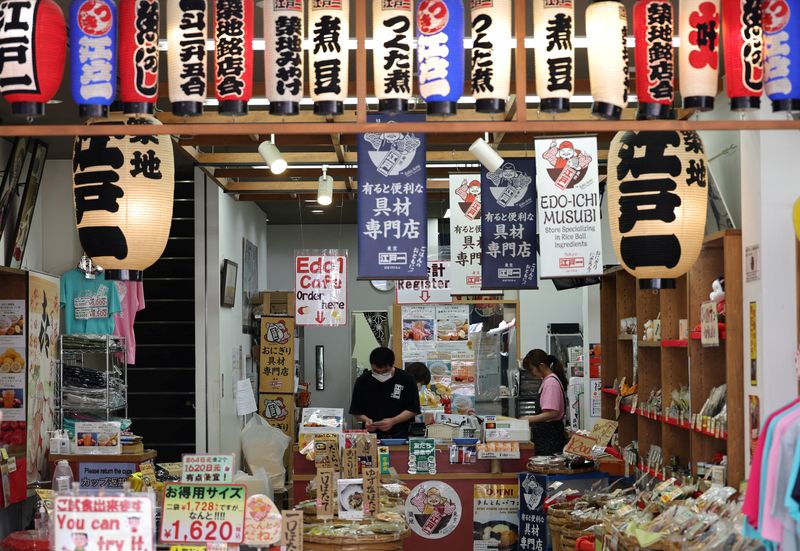By Leika Kihara and Roushni Nair
TOKYO/BENGALURU (Reuters) -Bank of Japan Governor Kazuo Ueda said the timing of the next interest rate hike was "approaching" as the economy was moving in line with the central bank's forecasts, the Nikkei newspaper reported, leaving open the chance of a December rate increase.
He, however, also said the BOJ wanted to scrutinise developments in the U.S. economy as there was a "big question mark" on its outlook, such as the fallout from President-elect Donald Trump's proposed tariff hikes, according to the Nikkei.
"We can say it's approaching in the sense that economic data are on track to meet our forecasts," Ueda told Nikkei in an interview conducted on Thursday and published on Saturday, when asked whether the timing of the next rate hike was nearing.
"We will adjust the degree of monetary easing at the appropriate time if we become confident" that underlying inflation accelerates toward the BOJ's 2% target in the second half of its three-year projection period from fiscal 2024 to 2026, Ueda said.
The remarks reinforce growing market expectations that the BOJ will raise its short-term policy rate from the current 0.25% as soon as its next meeting on Dec. 18-19.
The yen jumped on Friday after core inflation in Japan's capital accelerated in November, as markets stepped up bets of a December rate hike. Traders now see a 60% chance of a hike next month, having been undecided before the data.
In the interview, Ueda said wage growth, the pass-through of wage hikes to prices, and the strength of consumption were key factors in the BOJ's decision on how soon to raise rates.
Regular pay has recently been rising at a year-on-year pace of 2.5% to 3%, which is roughly consistent with consumer inflation moving around 2% in the long run, Ueda said, adding it was important for this trend to continue.
The outcome of next year's annual wage negotiations between firms and unions is key, he said. "While it will take a bit more time to confirm the momentum (of next year's wage talks), we don't necessarily have to wait until everything becomes clear."
Rising labour costs from higher wages are pushing up the price of services on a business-to-business level, though some data suggest the pass-through to consumers remains weak, Ueda said, adding that he wanted to watch developments carefully.
Ueda emphasized that if the Japanese yen continues to depreciate after the country's inflation rate surpasses the annual 2% target, it could pose a potential threat to the central bank's economic projections and warrant a response.
The weak yen, which heightens inflationary pressure by pushing up import costs, was among the factors the BOJ explained as leading to its decision to raise interest rates in July.
The BOJ ended negative interest rates in March and raised short-term rates to 0.25% in July on the view Japan was making progress towards durably achieving its 2% inflation target.

Ueda had repeatedly signalled readiness to hike rates again if the economy moved in line with the bank's forecast, though he has dropped few clues on how soon that could happen.
Just over half of economists polled by Reuters expect the BOJ to raise rates again at its Dec. 18-19 meeting.